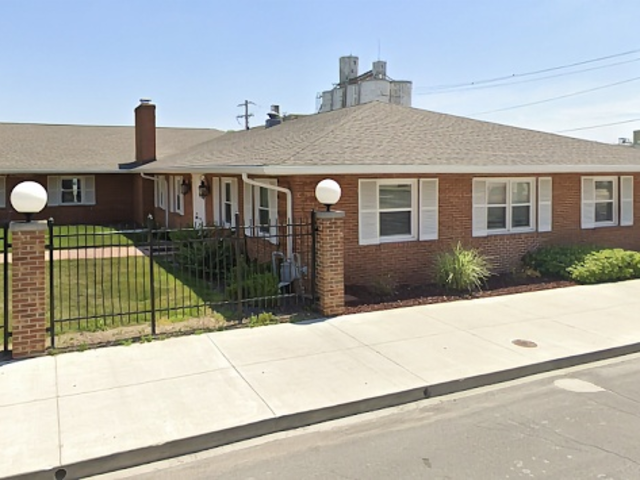More About Opioid Rehab Centers
Opioids include naturally occurring substances derived from the opium poppy plant (including morphine and codeine), semi-synthetic medications derived from naturally occurring opiates (such as hydrocodone and oxycodone), and fully synthetic substances (drugs like fentanyl) that resemble naturally occurring opioids in chemical structure or pharmacologic function(1,2).
Effects of Opioids
In the short term, opioids produce euphoria and pain relief; however, they can also cause drowsiness, respiratory depression, nausea, dizziness, and skin irritation.
With prolonged use, opioids can cause impaired attention and memory, an increased sensitivity to pain, depression, and anxiety. Physically, they can cause respiratory problems, cardiovascular issues, and liver damage.
Risks of Opioid Use
The most serious risk associated with the misuse of opioids is an overdose, which can be fatal(3).
Overdose occurs when an opioid’s depressant effects on the central nervous system cause life-threatening reactions. Overdoses usually include respiratory failure, where breathing becomes slow, shallow, or even stops completely. Without immediate medical intervention, an opioid overdose can be fatal.
If someone is overdosing, call 911 or your local emergency services number immediately. If you are qualified, administer CPR. Use Naloxone (Narcan) if available.
Detoxing from Opioids
Detox will rid your body of opioids and can be a great step towards recovery. Detox must be done under medical supervision to ensure safety.
Detox from opioids can last 4–20 days, depending on the opioid used. Quick-acting opioids like heroin typically have a shorter duration than long-acting opioids like fentanyl. Withdrawal symptoms usually appear in 8–12 hours after quitting. Symptoms include:
- Nausea and vomiting
- Anxiety
- Insomnia
- Hot and cold flashes
- Sweating
- Muscle cramps
- Diarrhea
Detox can be abstinence-based or assisted with medications such as methadone and buprenorphine. These medications are opioid receptor antagonists, meaning they attach to and activate opioid receptors in the brain to ease withdrawal symptoms. They can be used long-term if necessary.
Opioid Addiction Treatment
If you or a loved one are struggling with opioid use and want to quit, doing so under the care of qualified treatment professionals can provide a safe place to do so. Trying to quit “cold turkey” or without medical supervision may increase the chances of experiencing mild to severe withdrawal symptoms and increase the risk of relapse(1,2).
Depending on your personal treatment needs, you may benefit from one of the following levels of care:
- Inpatient: You’ll live in a treatment center or hospital-like setting and have 24/7 monitoring.
- Partial hospitalization (PHP): You’ll meet 5-7 times a week for a full day.
- Intensive outpatient (IOP): You’ll meet 3-5x per week for several hours at a time for more intensive care.
- Outpatient (OP): You’ll meet 1-2x per week with your provider and others in treatment.
Managing opioid addiction can be a complex and individualized process. Working with a licensed professional who’s experienced in heroin addiction can help guide you through the healing process. They will provide you with appropriate tools, techniques, and support tailored to your specific needs. You may engage in talk therapies such as:
- Cognitive behavioral therapy
- Contingency management (CM)
- Relapse prevention counseling
- Motivational interviewing
You may also choose to incorporate medication into your overall treatment plan, as medication can be an important component of opioid use treatment because it can help a person manage withdrawal symptoms and reduce cravings. Medications a person may receive include(4):
- Buprenorphine, which partially activates opioid receptors in the brain to manage withdrawal symptoms during detox.
- Methadone, which completely activates opioid receptors but does it more gradually than other opioids, so there is less chance of a “high” when used during detox.
- Naltrexone, which blocks the effects of opioids, so a person won’t feel the euphoric effects of heroin if they use it.
Questions to Ask Your Provider
If you’re looking for opioid treatment, talk to your primary care doctor. They can refer you to a substance use rehab to start your recovery. When talking to your provider, consider asking these questions:
- What are the benefits of the different types of treatment available? What are the risks?
- Are there any specific medical or psychiatric assessments I should do before starting treatment?
- What does relapse prevention planning look like?
- Is there treatment that can address any co-occurring disorders that I have?
- Does insurance cover treatment?
How Can I Find Support?
- Rehabs for Opioids
- Telehealth Provider
- Talk to a supportive friend or family member
- Talk to your primary care physician
Sources
- National Institute on Drug Abuse. (2024, March). Opioids.
- National Institute on Drug Abuse. (2021, June 1). Prescription Opioids DrugFacts.
- Centers for Disease Control and Prevention. (2024, May 8). Overdose prevention: Risks and how to reduce them.
- National Institute on Drug Abuse. (2021). Heroin research report: What are the treatments for heroin use disorder?






















































